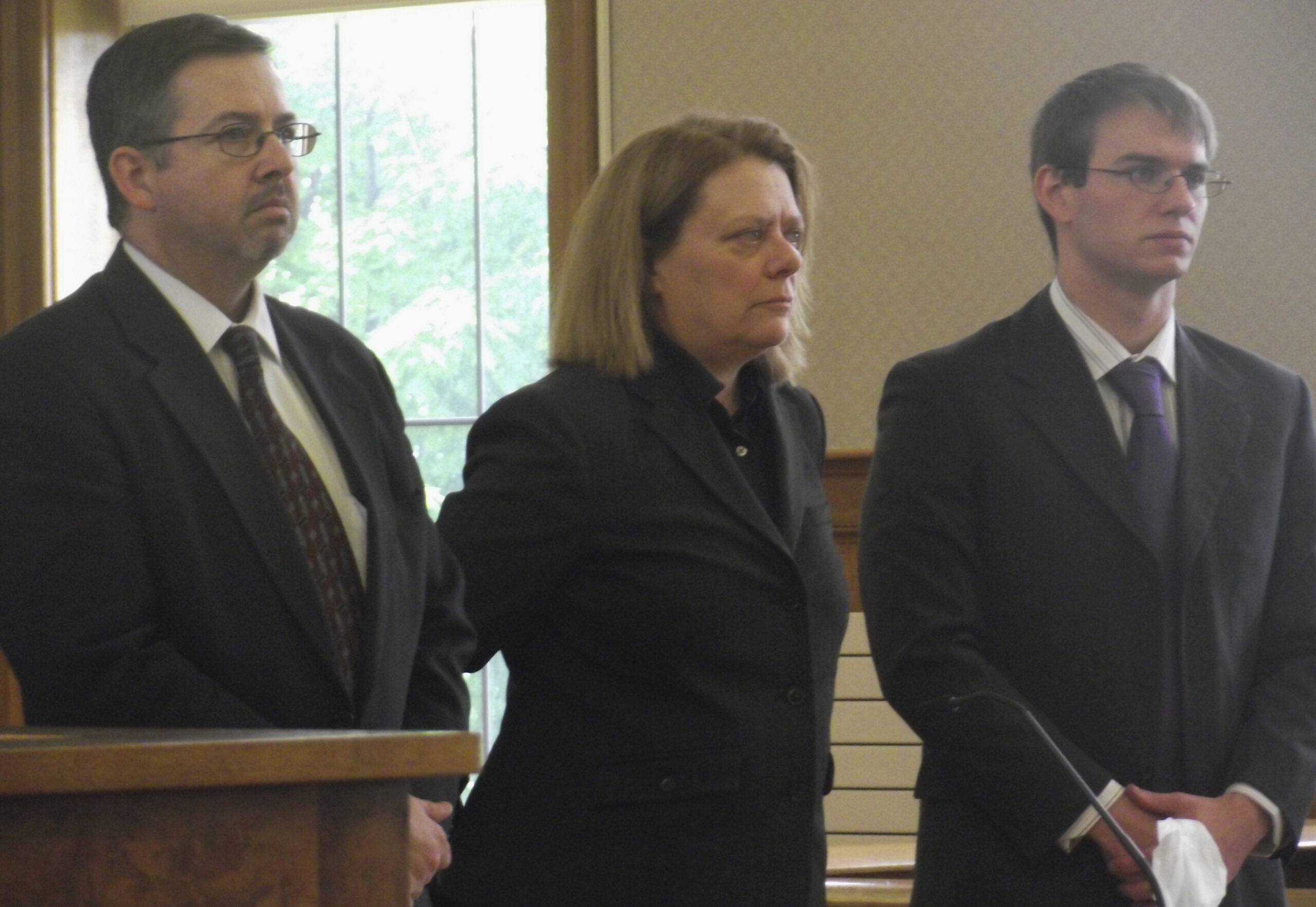
AMITY, Maine — Thayne Ormsby, an Ellsworth man convicted six years ago in a brutal triple slaying in southern Aroostook, is asking for a post-conviction review of his case and a possible new trial, alleging that the state failed to pursue an alternative suspect in his case and that Ormsby’s defense counsel was ineffective.
Attorney Hunter Tzovarras filed the request on behalf of Ormsby, 28, who is imprisoned at the Maine Correctional Center in Windham. A hearing was held in Aroostook County Superior Court in Houlton Wednesday before Superior Court Justice E. Allen Hunter.
In June 2012, Hunter sentenced the then 22-year-old to three life terms in prison for stabbing to death Jeffrey Ryan, 55, Ryan’s son Jesse, 10, and Ryan family friend Jason Dehahn, 30. All three were found dead about 27 hours after they were killed on June 22, 2010, at the elder Ryan’s home on U.S. Route 1, according to police. The state medical examiner determined each died of multiple stab wounds.
A jury of seven men and five women found Ormsby guilty of three counts of murder as well as arson for burning Jeff Ryan’s truck after he stole it from the murder scene. Hunter sentenced Ormsby to 15 years years on the arson conviction, to be served consecutively with the life sentences. At trial, Ormsby was represented by James Dunleavy and Sarah LeClaire, attorneys from Presque Isle.
Ormsby had moved to Orient just weeks before the murders to live with Robert and Joy Strout. Court testimony revealed there was animosity between the Strout family and Jeff Ryan because Ryan had once had a relationship with Tamara Strout, Robert and Joy’s daughter. Tamara Strout eventually had a child with Ryan. Robert Strout also told Ormsby that Ryan was a drug dealer, which police said there was no evidence to support.
After his conviction, Dunleavy and LeClaire filed an appeal with the Maine Supreme Judicial Court, arguing that Ormsby’s convictions should be overturned based on several factors, including that his rights to an attorney and to remain silent were violated by police and that he was denied a change of venue despite prejudicial pretrial publicity.
The justices found no basis to support the arguments and in October 2013 upheld the convictions.
In the latest appeal, Ormsby’s new attorney Tzovarras claims that Ormsby’s clearly established Fifth Amendment rights under the U.S. Constitution were violated in a July 2, 2010, interrogation by police and that the trial court and supreme court both erred in not suppressing statements provided during that interrogation. He also alleges that Ormsby’s defense counsel was ineffective by not developing and presenting a defense of an alternative suspect to the murders. Tzovarras said that Robert Strout should have been considered as an alternative suspect and that he was known to the defense at the time of trial.
“Had defense counsel developed and raised this alternative suspect theory at trial there is a probability Mr. Ormsby would have been found not guilty of the charges,” Tzovarras wrote in his appeal.
Robert Strout was 64 when he was convicted in 2012 and sentenced to four years in prison for hindering apprehension and arson for his role in helping Ormsby conceal evidence in the murder investigation. He died in December 2015.
Hunter is expected to decide sometime in July whether to grant the appeal and a new trial.







